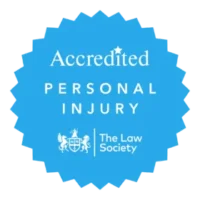Medical Negligence: The importance of immediate treatment
12th Jan 2024
When yourself or a loved one is seriously unwell and their condition is rapidly declining there is often the feeling that medical professionals are not doing enough to actually treat the injury or illness. This is an obvious and understandable reaction to the extreme stress and pain of the situation; and, in some cases it can be more beneficial to withhold treatment and see how it develops prior to treatment, referred to by the NHS as a “watch and wait” period.
However, there are certain illness and injuries which do demand immediate and decisive intervention to prevent long-term injury or death.
Sepsis
Sepsis, otherwise known as blood-poisoning, is the immune systems overreaction to an infection, which if left untreated can result in deadly septic shock.
According to figures from the The Sepsis Trust there are 245,000 cases of sepsis reported each year in the UK and of those 48,000 people die as a result. Substantial figures are yet to be released but experts believe that this number will have risen sharply during the COVID-19 pandemic.
If sepsis is suspected NHS staff are instructed to follow strict guidance found within the National Institute for Health and Care Excellence (NICE). Often this involves providing a NEWS score, antibiotics and consistent monitoring amongst other interventions.
Without immediate intervention by the medical staff sepsis can turn deadly within hours. This is the unfortunate story for thousands across the UK each year, especially those who are suffering from multiple injuries or are elderly. For those fortunate enough to recover they are often still afflicted by long-term medical conditions and associated mental health issues.
Foot drop
Foot drop (drop foot) is where it’s difficult to lift or move your foot and toes, which can make it more difficult to walk, drive or work. The most common cause of foot drop is damage to the nerve in your leg which can be caused by:
- sports injuries;
- a slipped disc in the spine;
- hip or knee replacement surgery; or
- not moving for a long time (for example, if you’re staying in hospital).
Once the nerve damage begins most patients have only a matter of weeks to seek medical treatment before they suffer foot drop.
As with sepsis, if foot drop is suspected NHS staff are instructed to follow strict guidance found within the National Institute for Health and Care Excellence (NICE). Which in this case involves investigations like physical exams, scanning and nerve tests and if nerve damage is found then more invasive treatment can be given to prevent the development of foot drop.
Those who are not treated effectively with immediate investigation and treatment and do develop foot drop often suffer from this permanently as the treatment options are limited and can come with significant risks. This has a long-term impact on peoples ability to work, care for their family, drive or be mobile in general.
How we can help
These are specific examples but more generally:
- If there is clear evidence that treatment should have been offered by your medical provider (e.g. hospital, GP, physio etc.)
- for an illness or injury;
- but this treatment was not provided, was significantly delayed or provided negligently;
- and this has caused you injury and loss.
Then a claim may be made for medical negligence against that provider. At Thatcher + Hallam our medical negligence team are experienced in advocating for those who have suffered medical negligence and are on hand to assist with your claim with ‘no win, no fee’ funding as standard.
If you are concerned about the treatment that you or a family member has received, please contact our team through our legal surgery enquiries page for a free no obligation discussion.
Related news
Articles you may find useful
Like this article? Sign up for our regular newsletters






